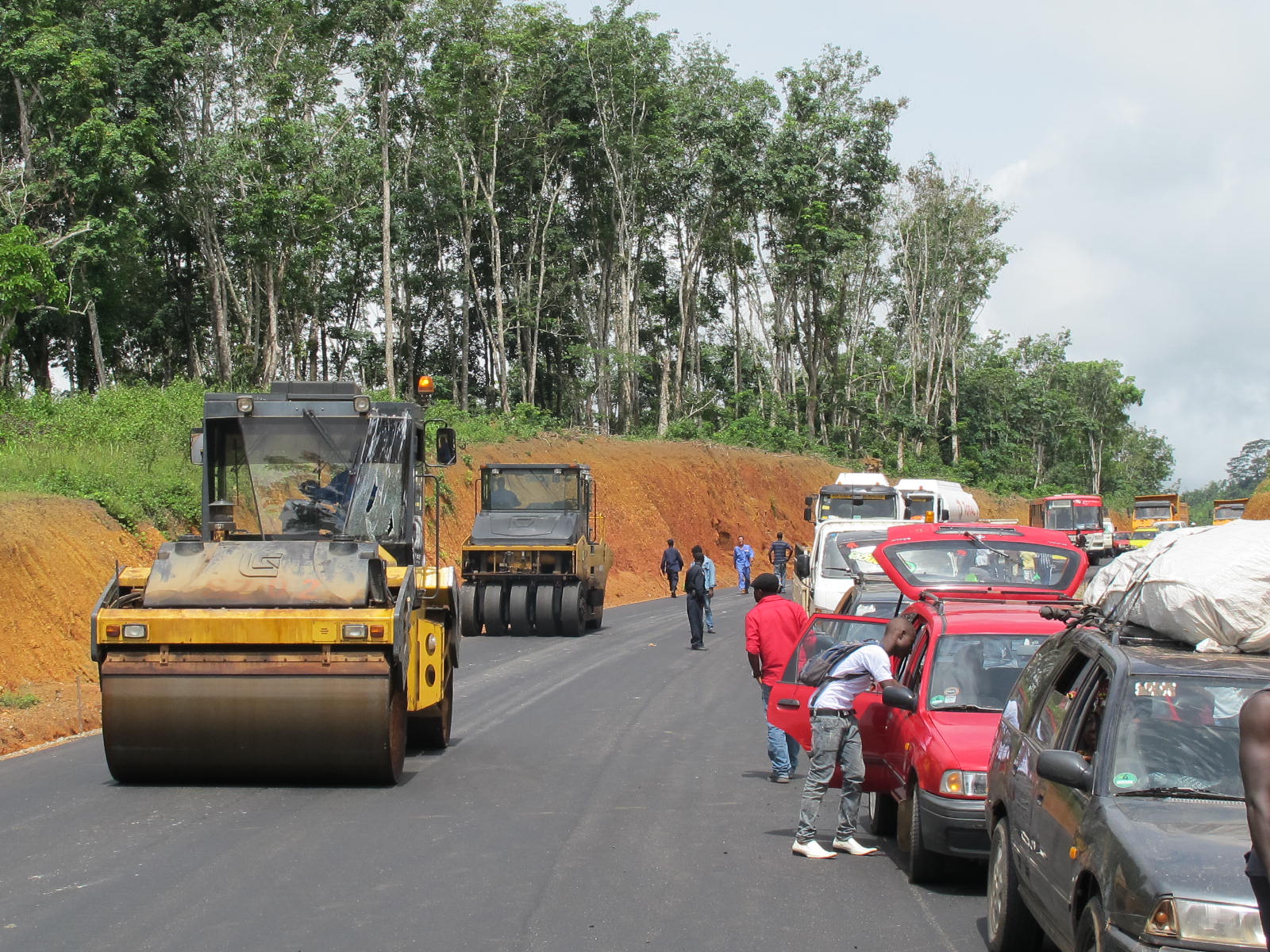Adoni Greaves smiles as I ask him about the brand new road we just drove from Monrovia. “This road used to be in terrible condition. It would take nearly four hours to reach the capitol”. Adoni is the Assistant Superintendent for Development of Grand Bassa County in Buchanan and he has seen tough times. The rainy season recently began in Liberia and we were grateful for the first class road recently completed by a Chinese company who won the contract. The country is on a road building spree in the second term of Ellen Johnson Sirleaf’s presidency, the first elected female president in Africa. During our trip north to Nimba County and eventually eastward to Zwedru in Grand Gedeh county, we came upon several road crews working on various segments of the new road. At one point we were held up for an hour as the crew laid the tarmac over a bridge. It’s one of the few traffic jams that I am happy to wait for, and I think others agree.
Fourteen years after a devastating civil war which claimed up to a quarter of a million people, Liberia remains one of the poorest countries in the world. Despite ample natural resources such as iron ore, gold, timber, rubber and off shore oil, as well as rainfall that would be the envy of the rest of the continent, it is extremely difficult to access most of the country. Apart from the main roads which link the county capitols, many of which remain unpaved, the feeder roads which link smaller villages are practically impassable, especially during the rainy season which lasts from May to August. When discussing this issue with Irish NGO – Concern who work in Grand Bassa County, they told us there are areas they work in the northern part of the county which are inaccessible by car. Their field agents must walk up to seven hours to reach some of those villages. These remote hamlets are often prone to some of the worst malnutrition indicators such as stunting and wasting and exhibit high numbers of childhood illnesses. Farmers are unable to get their produce to market or get much else for that matter, including improved seeds, fertilizer and other inputs. Local government authorities note that many of the NGOs tend to cluster their work around areas in which they can reach. As a result, it is not uncommon to find numerous agencies working in accessible areas near passable roads. We can bemoan this fact, but can you blame them?
Apart from the challenges of poor road infrastructure on the poorest households, it is challenging for the private sector to recover and rebuild the economy given road conditions in Liberia. Mineral resources such as gold, iron ore and cash crops such as cocoa, rubber, coffee and palm kernel require good road or rail transport to export. Accelor Mittal, one of the world largest steelmakers based in India, has iron ore concessions in Liberia. The company refurbished the country’s sole rail line in 2013 which runs from the port of Buchanan to the Guinean border at Yekepa where the company has a large mine. The once robust cocoa sector is slow to recover and margins are lower due to the roads, many of which are impassable during the wet season.
In the meantime, Chinese contractors are slowly inching north and southeastward to Zwedru. I imagine returning to Liberia a decade from now and recounting the rough journeys I once took. I look forward to that day and I’m sure Liberians feel the same way.

